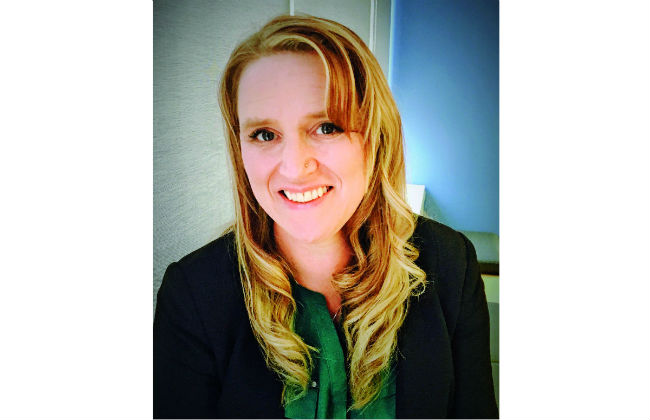Winner: HR Rising Star

Listening to Andrea Scheelar talk about shifting Horizon North Logistics — a Calgary-based construction company of 1,500 employees — to shared services, it’s little wonder she was fast-tracked from a short-term contract role to full time at the company.
“We are basically changing the way HR interacts with business on a wide scale, from how HR is modelled, to how services are delivered to businesses, to how information is managed, to how we are recruiting,” she says. “It’s a scope of work. We are halfway through the process now. We’ve got people services and groups established. Now, we’re process mapping end-to-end every HR process.”
In making the nomination, Horizon North cited Scheelar’s ability to engage with customer groups and manage significant projects both strategically and technically — which she proved in the year leading up the implementation of the company’s first HRIS system.
“It’s never a matter of if Andrea will do it, but when,” says Ben Bazinet, vice-president of HR.
But it’s Scheelar’s analytical business mind that Horizon is most impressed with.
“Most HR folks are not of a business mindset to the level Andrea is,” says Josh Roberston, HR administrator at Horizon North, in his nomination. “Andrea’s ability to focus every project to a bottom line number and/or business driver has gained her significant credibility with business unit leaders. It isn’t about ‘touchy feely HR topics’ with Andrea, she is about driving success at the bottom line.”
After graduating from the University of Calgary in 2010, the 45-year-old self-described “late starter” has since attained her Chartered Professional in Human Resources (CPHR) designation, a graduate certificate in executive coaching from Royal Roads University in Victoria, certification in Prosci Change Management and qualification as a Myers-Briggs facilitator.
When it comes to the key to her success, Scheelar says it comes down to two things: a lesson she learned early on in her career and her ADHD (attention deficit hyperactivity disorder).
First, the lesson. While working at an oil and gas service company, she was asked to build relationships, gain an understanding of the culture, and assist in removing barriers to employment for Aboriginal communities.
Having never even been in a First Nations community, Scheelar realized very quickly she knew nothing about their challenges, and to truly help them, she would have to listen.
“It was a very new dynamic walking in and listening to what’s needed, and I knew, because I knew nothing, I would need come to the table with an open mind and really listen to what’s going on.”
Her efforts paid off — Scheelar developed an Aboriginal talent management strategy and implementation plan that resulted in an average of 55 per cent Aboriginal employment on a major project. She also liaised with Saskatchewan First Nations communities and agencies to secure government funding to implement a skills training program with a 77 per cent completion rate and 50 per cent direct employment of graduates.
The listening lesson came in handy for the 2016 implementation of the HRIS system at Horizon.
“Previously, all major data was managed by payroll while HR and other areas were managing off an Excel spreadsheet. This was a huge undertaking. We were centralizing not just data but the processes that managed data,” she says.
And while Scheelar had managed big tasks in previous positions, this would be her biggest undertaking. So she stepped back and tried to understand the whole company with an open mind, from its history to where it was at now.
“(This) allowed me to understand why everyone was doing things differently. It was then easier to be able to explain to people how the system would improve their situation or solve their problem,” says Scheelar.
Not only successfully managing the project on time and on-budget, Scheelar reduced the number of HR forms used from 40 to four — despite having a hard time with details, she says.
“With ADHD, details are always something that I’m working on. And while (the disorder) has a lot of challenges, it also has a lot of benefits. I’m able to see connections and think of solutions other folks might not be able to.”
When Scheelar has finished the shared-service project, she says she’d like to work on something that increases awareness and support for people with mental health issues in the workplace.
“You can see how having something like ADHD is a blessing and a curse, but that if we design the workplace to support mental illnesses, it can have a lasting impact.”
Lesley Young is a freelance writer based in Edmonton.




